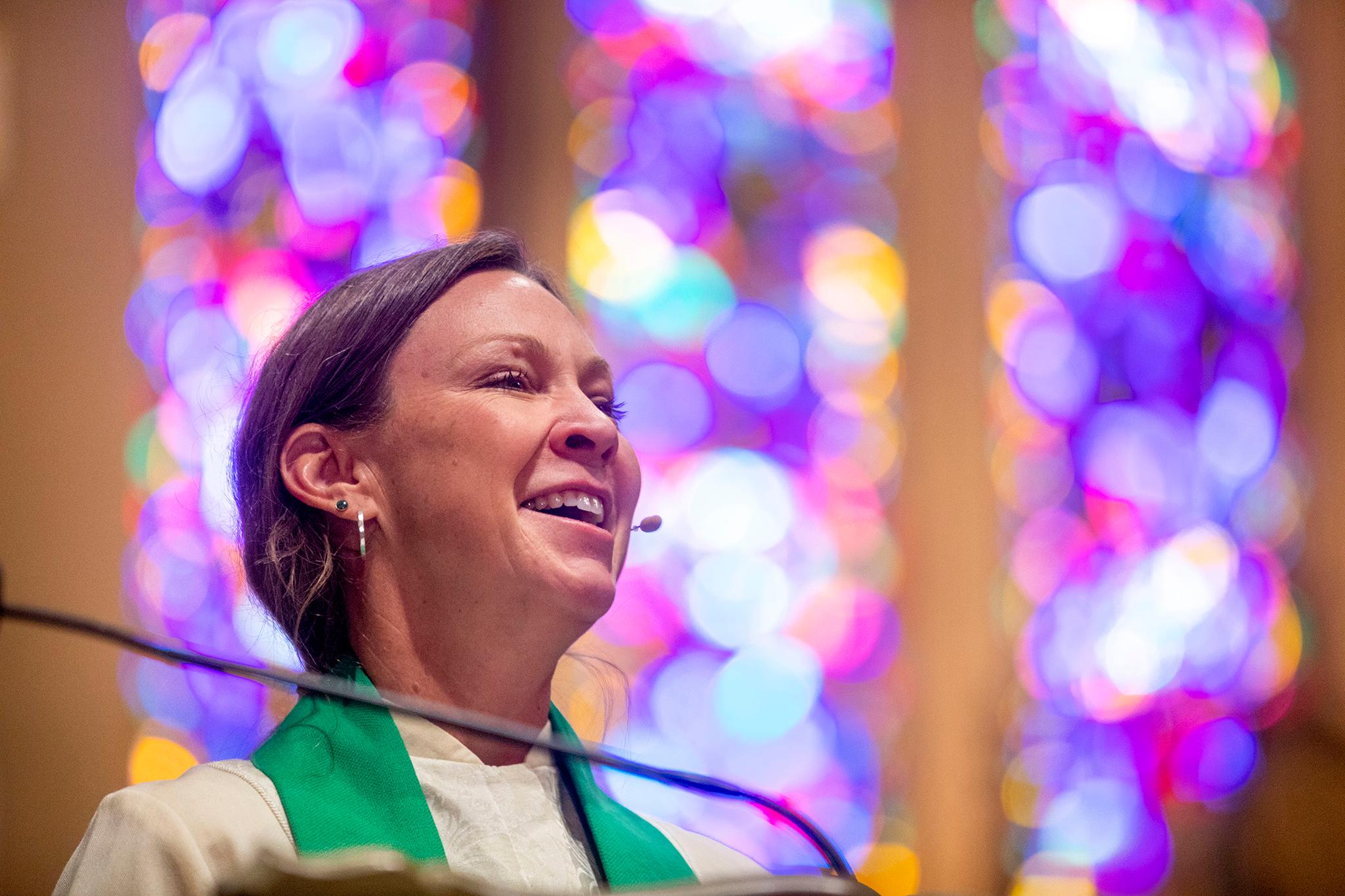The Iliff School of Theology, which sits off University Boulevard, just south of the University of Denver, has been around for about 130 years. Recently, school leadership has been working to make sure the communities around it - and potential students - see their work rooted in current-day issues and movements. It's a crucial moment to reaffirm their relevance, as more and more Americans identify as secular.
Professors have dug into the ethics of artificial intelligence and climate justice. Now, they're launching an Institute for Religion, Politics and Culture, led by Rev. Amanda Henderson.
Henderson will be a familiar face to some politically-engaged Denverites. She was executive director of the Interfaith Alliance of Colorado from 2014 to 2020, and often appeared at protests against city's handling of unhoused residents and public conversations about hate crimes or intersectional organizing.
As a visible presence in some progressive circles, complete with a collar and frock, she said she's been written off by activists who have dismissed religion altogether.
Still, she said there's a long tradition of liberation among people who believe in a higher power. Her new institute at Iliff is meant to keep people of religion and faith engaged in political discourse, and offer advocates ways to understand how religion shapes the issues they care about.
Denverite spoke with Henderson about all this and more.
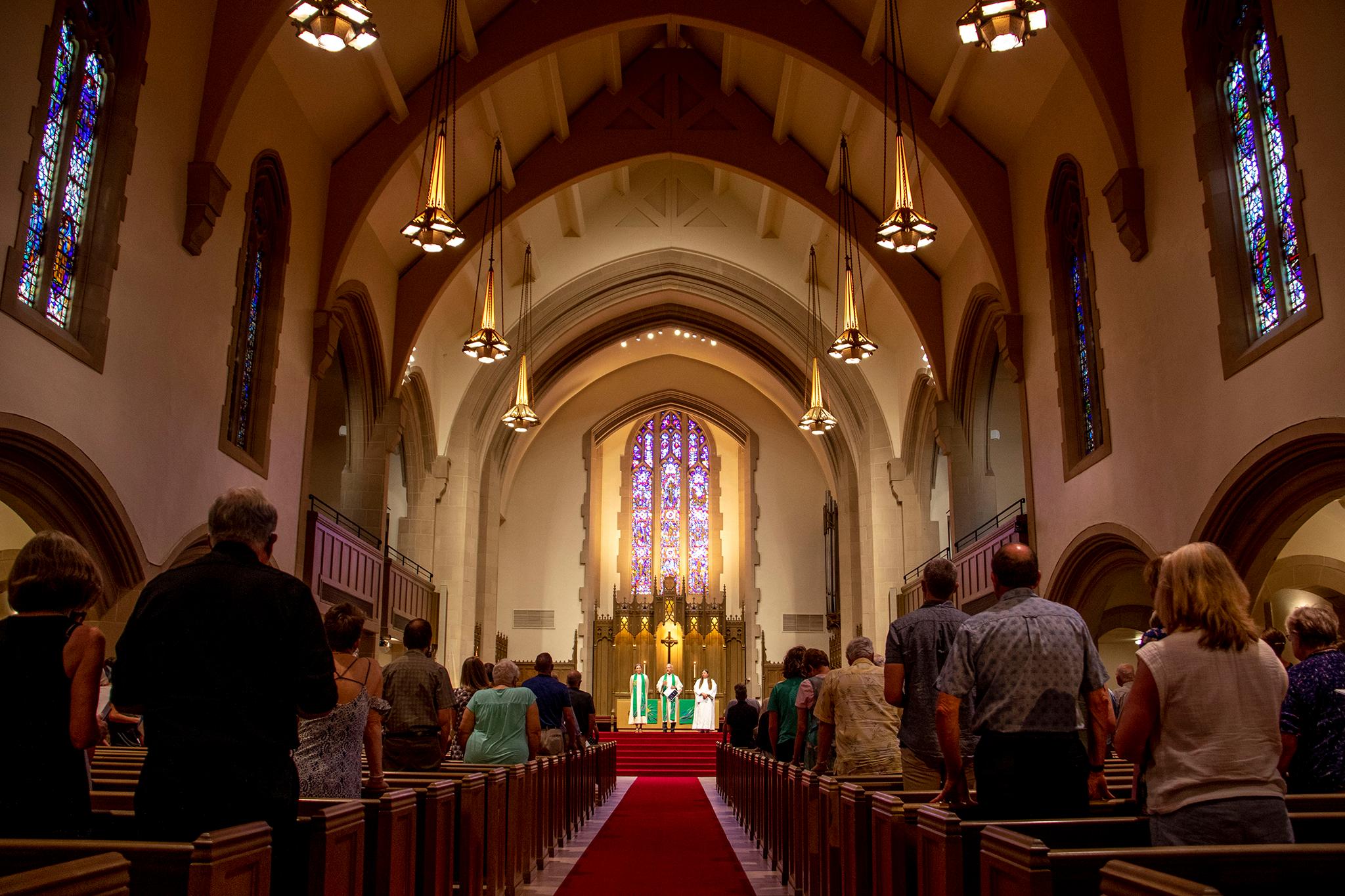
This interview has been edited for brevity and clarity.
KB: Can we just start with what you're up to right now? What are you doing here?
AH: I worked with interfaith Alliance for six years, almost seven, and loved it and loved being in the thick of so many important issues and being able to think in those spaces and to be able to be creative doing advocacy.
The Trump years -- that was intense and hard and exhausting for a lot of folks leading in those spaces, as we all know -- but I also so often felt like there wasn't a deep enough understanding of religion and the ways that religion shapes each of these issues. Not only currently, but historically. Foundationally, religion and religious ideas - and particularly Christianity - is so tied up in our paradigms for how we understand all of these issues. And as someone who's working for progressive change and is working and committed to building democratic, inclusive, just systems, I find so often that people don't take religion seriously enough. And too often, we are quick to dismiss religion or just condemn religion for, you know, the rightful ways that we see hurt.
So out of that, I felt like we need a deeper analysis and more creative ways of communicating these ideas ... there's a lot happening. In religious scholar circles, there's a deep understanding of the ways religion has informed our political structures, but it doesn't often connect to advocates and activists, or political folks. We needed a bridge.
KB: When you talk about reframing the role of religion, you're talking about the work of recognizing how religion has played into some adverse conditions in our world, but also looking at ways that religion can help overcome some of those problems?
AH: Yeah. I think that it's not an either/or, and too often we see it as either like the force for good or force for evil type of language. I'll have frequent conversations with folks who are like, "You know, everything about religion is terrible, or everything about religion is good." And, like, no. Neither are. Is everything about you good? Is everything about you evil? Nope. Me either.
I like to say is that religion is a construct in similar ways to race and gender. That doesn't mean that it's not important. Race is still extremely important. Gender is still extremely important. Religion is still extremely important.
Religion can function in ways that are oppressive and justify harm and hate and slavery and Christian nationalism and insurrections or anti-LGBTQ work. But it can also be used to call for the end of slavery, the civil rights movement, also sustain people in their personal lives and give people something to hold onto when they're struggling or in pain or suffering.
And there's something real there that we can't dismiss either. And so, so often when people just dismiss even personal experiences of religion, I think that's really at odds with a progressive, inclusive way of seeing ourselves and honoring another person's experience.
KB: There's a place for people who believe in God in a progressive movement?
AH: Totally. And there has been forever, by the way. Like, this whole tied-upness in religion and conservative movements is less than 50 years old and began in the 1960s, '70s. So that's always like: the way things are is not the way things have always been. That's always important to remember. There have always been progressive religious people.
But beyond that, even if you're not religious at all, and even if you don't care to be religious yourself, to understand that religion is shaping other people and to understand that it's shaping how people see themselves and others and how they understand political questions - if we are gonna find paths forward right now in a time when we're so divided ... we are not going to be able to build a democratic, free, inclusive, just society without reckoning and giving attention to the ways that religion is moving in people's lives and in our systems.
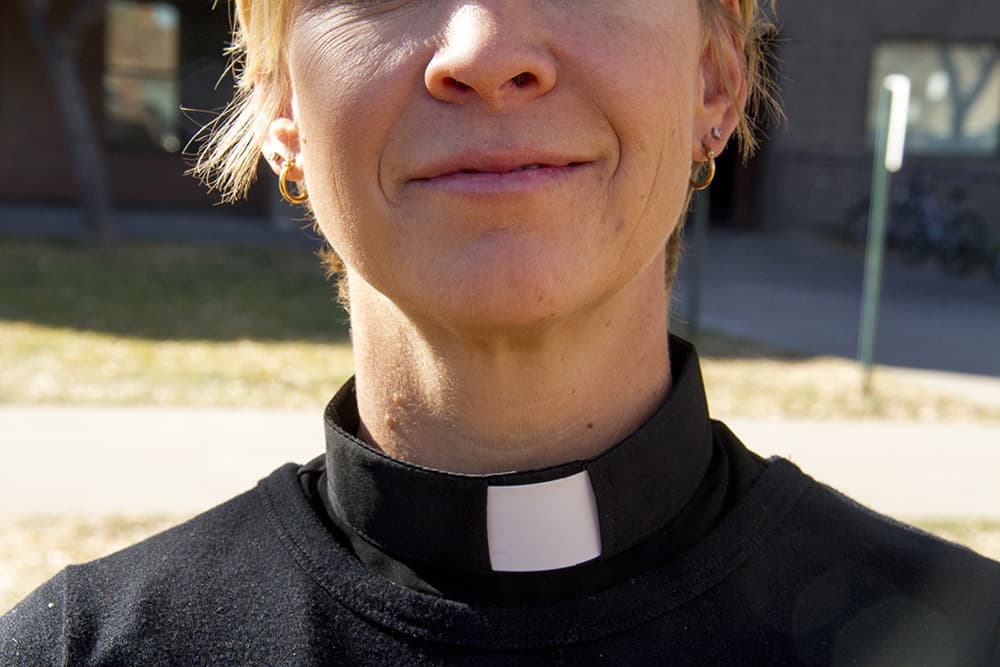
KB: How you have seen activism, at large, change from 2014 into the Trump years, and then into our current, crazier era? In particular I'm curious how you've seen the protest, activist community in Denver change through that time? How has your place changed? Are you as welcome now as you were?
AH: Early on, I was just showing up and getting to know people. One of my ways of entering those spaces is relationship and caring about the person in front of me. Focusing on the issues that we're working on, trying to resist or counter any competitiveness that happens within progressive movements. I would just get so frustrated with any of that, because our enemy is not each other. Our enemy, if you will, is complacency. That's our biggest enemy, and then those who are trying to harm and oppress, so let's stay focused together on those.
I always felt really welcomed, even if misunderstood.
KB: How do you mean?
AH: Everyone has an assumption about religion, whether they're religious and they put those ideas on you, or they have horrible harm and trauma with religion, which I get, and they put that on you. So I've been in spaces where they're just like, "Why are you here?" To be a spokesperson? Or are there people who really long for it?
Honestly, I've met a lot of those folks who are both. They long for it personally, the connectedness and the "what are we doing this for?" ... There is a longing for that.
I also think that one of the things I saw, and I worried about this in the lead up to the 2016 election, was the purity culture within progressive movements, that they'll now call "cancel culture," which I think progressives learned from conservatives. We're all caught up in this "you're with me or you're against me" mentality, and I think that that's really problematic and I experienced it as problematic within progressive movements. I think that it's possible to be deeply rooted and committed to a vision and a value system without completely condemning and excluding those who are not one hundred percent aligned with you. I saw in too many spaces people written off, or just not enough room for nuance, or the fact that we're all growing and learning.
Like, who's the same person they were 10 years ago? I don't know anybody who is. It's just so shortsighted, to me, to write people off. And I saw that happening. I've seen that happening since the beginning, and then it's just kind of escalated. I do see a turn. I don't know, maybe I'm naive and optimistic.
And then two years of COVID, and not being able to have - I mean, we would go for walking meetings or hang out in happy hours, you're just doing life together. It bonds you in ways that, then, you can navigate the hard stuff in more deeply connected ways. And when you don't have that foundation and you don't know the person, it makes the work harder. And I think that the things that we're up against in progressive movements are even more challenging now.
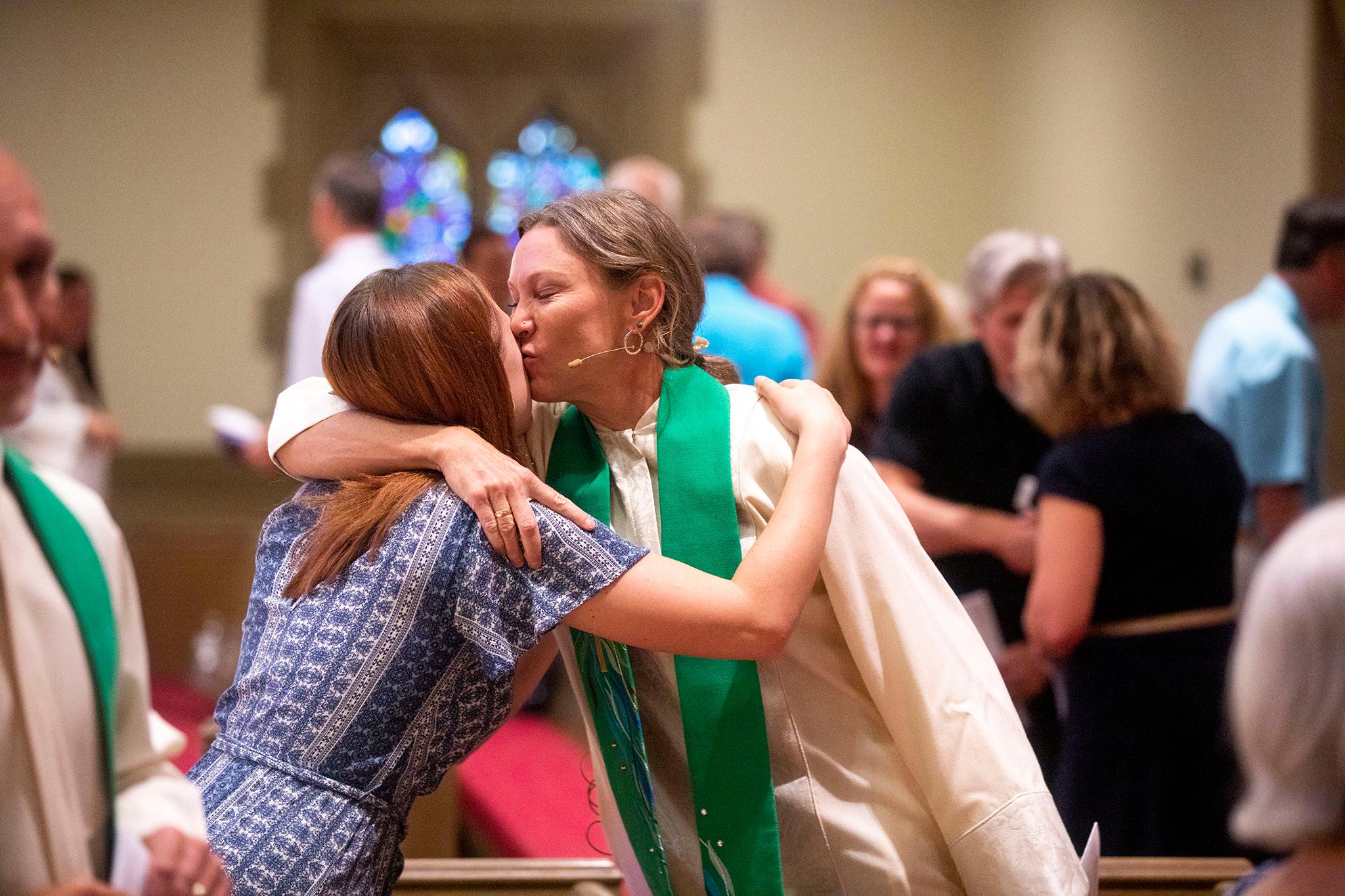
KB: Safe to say that you feel that some of the existential stuff that we've been dealing with played into a general unrest that allowed that kind of thing to foment?
AH: So much. Yes. And people are tired and many of us are sick, you know? We're exhausted. We were tired after four years of emergency-response posture with Trump. We're tired after two years of COVID, navigating illness, families, economics. There's personal exhaustion. And then there's organizational exhaustion. And then there's the existential, like, democracy, political exhaustion. So finding places where we can connect and root and build resilience and imagination is more important than ever, and really hard.
KB: So is one of the goals of your work here, now, to work on this specific issue? The alignment of people who are trying to do the same thing?
AH: Yeah, for sure. When we started the first year, I was quiet, because I was spending a lot of time learning and listening and finding what was happening around the country in the space of religion and politics -- faith-rooted activism or a think-tank-political-strategy-type of posture, or from an academic posture. We are trying to do something that's a little bit more weaving those pieces together.
How do we bring people together, both physically and online for that type of work and conversation? As well as, do some of the research. How is religion shaping where we're at now? And connecting with some of the scholars who've been doing that for a long time. This isn't reinventing the wheel. This is finding those scholars and helping connect them to the activists, the advocates. Creating spaces for those kind of interactions is something that I'm really excited about building.
And then, we have a podcast coming out, "Complexified," which is about exploring the ways that the places where religion and politics collide with real life. That'll launch in August.
And then we're also doing consulting and doing work with political and advocacy groups to help kind of infuse these thoughts and ideas, and help them understand the ways that religion is shaping the issues that they're trying to support, the ways that that understanding can help them be more effective at building change.
On the docket in my dream world is, like, groups for advocates and activists to be connected with people who are experts or practitioners in that rootedness and the history, and to create spaces to be able to support those folks in both gaining knowledge as well as support and connection.
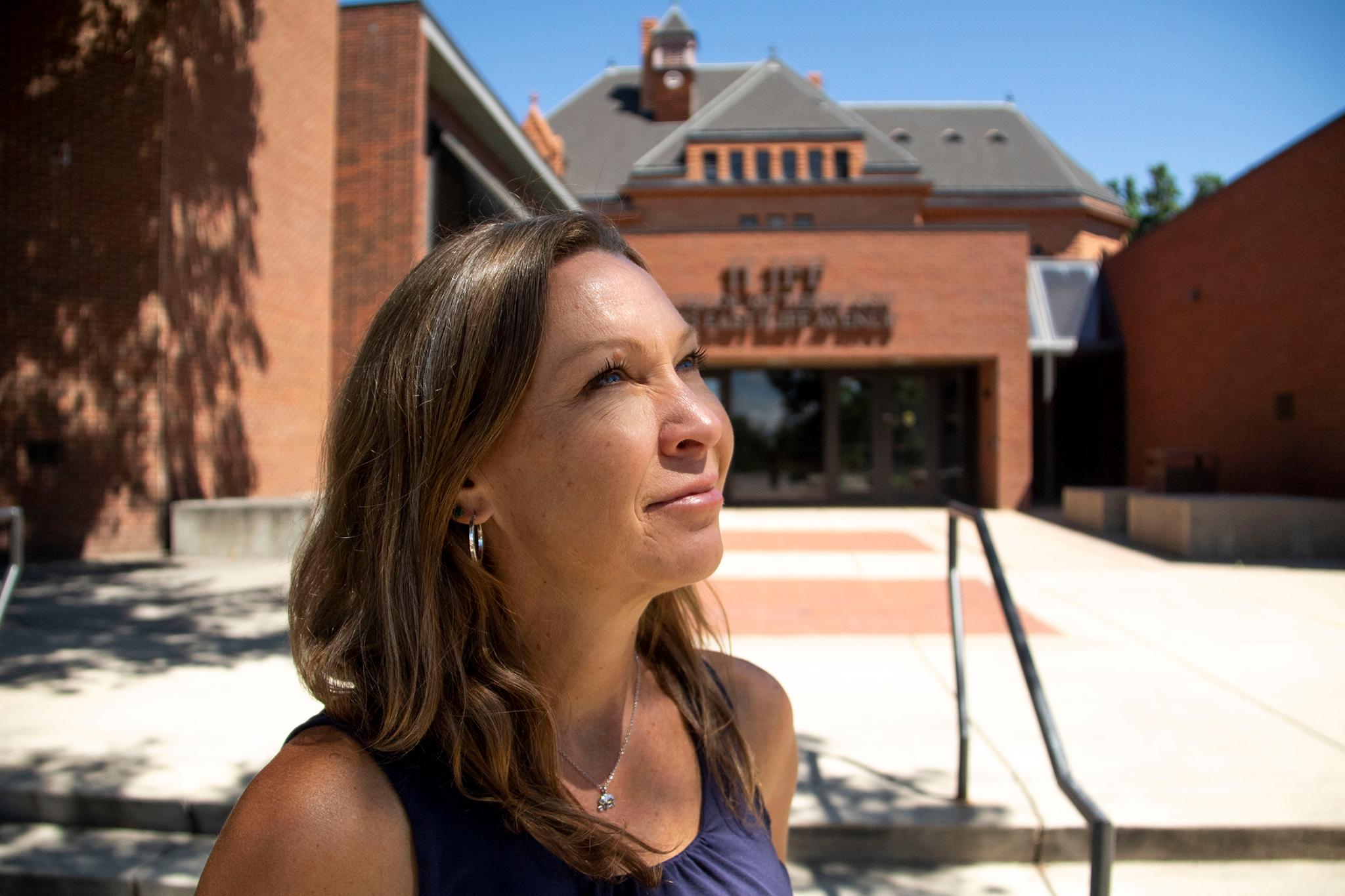
KB: When you talk about these connections, what is your pitch to a progressive group? Maybe one where you're simultaneously dealing with this dismissal of religion? How are you gonna get those folks engaged?
AH: First is asking them: Where do you feel stuck? And where are you? How is it going, trying to build the vision that you have? What are those obstacles to being able to break through and create the real change?
For example, LGBTQ work. There was this feeling like, okay, we've done it. We got marriage equality. And then now, in the past year, there were 240 bills across the country that are anti-LGBTQ bills, and a high number of anti-trans, especially targeting young people. So what's going on here? What do you see as your obstacles?
And then inviting, like, how is religion and the way people see themselves and others keeping you from being able to break through on these issues?
KB: I hear you offering insight for advocacy groups, to say, "We understand what makes some of these ideas tick, and we can help you figure out how to appeal to these folks." Are you also offering a doorway into religious communities to say, "We should also be including these people in our organizing?"
AH: For sure. And the reason I don't go there first, is we have some groups in Colorado that are excellent at that. We have groups nationally who are really good at that. That needs to keep happening, supporting those groups who are bringing in, engaging faith communities. The gap that I have seen the most is a (lack of) openness from progressive-minded advocates and political-minded folks to understand religion in deeper ways. So even when they engage religious communities, they might be putting on assumptions to those encounters, and then it often becomes transactional.
The first part is helping them, before they are engaging religious communities, understand and value people's religious experiences and the religious water that we swim in. That, to me, is such an important part, so that it doesn't become "we need the religious voters." Honestly, when I ask people, that's the first thing that they say. "How do we get religious voters?"
Well, it actually starts with caring. Similar to "how do we get Black voters? How do we get Hispanic voters?" It needs to be a community thing, and rooted in relationship and caring about one another.
KB: How will you know if you're successful in your mission here?
AH: I think if we are changing the narrative in some way. And if I start to hear people understanding religion, even starting to address religion or take it seriously as an important thing that needs to be addressed in progressive movements. If we're getting calls like, "We know that we need to have a better understanding of religion in this space," that would be a sign of success.

